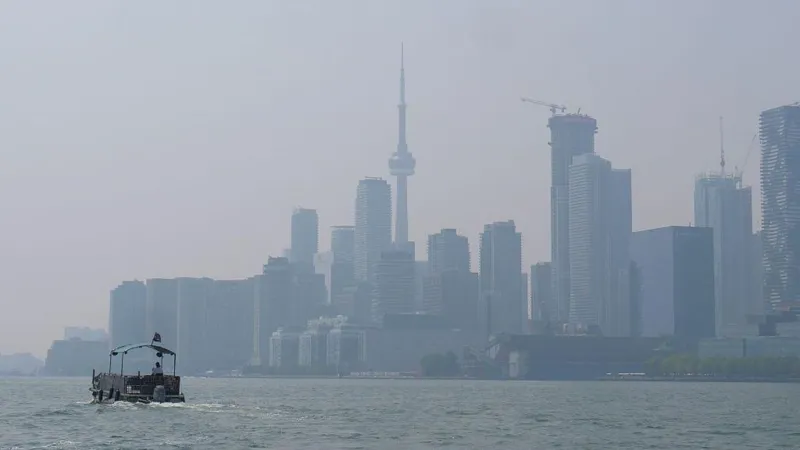Widespread wildfires continue to wreak havoc across Canada, prompting urgent air quality alerts in both Canada and the United States. Environment Canada has issued warnings for much of Ontario, including the Toronto region, where air quality levels ranked among the worst globally on Monday.
In the U.S., the National Weather Service has declared an Air Quality Alert for the Chicago metropolitan area and parts of northwest Indiana through Tuesday evening. The alerts cite elevated ozone levels and residual smoke from Canadian wildfires, with health officials advising vulnerable populations including infants, the elderly, and those with preexisting health conditions to limit outdoor activity.
Canadian Prime Minister Mark Carney is expected to meet with emergency responders in Ottawa to assess the growing crisis. Wildfires continue to burn across northern Ontario, Manitoba, and Saskatchewan, where thousands of residents have already been evacuated. Local governments in Saskatchewan and Manitoba have declared states of emergency in response to the escalating situation.
Environment Canada’s advisory underscores the risks posed by wildfire smoke, warning the public to avoid outdoor sports and reschedule events whenever possible. “When air pollution levels are high, everyone should limit time outdoors,” the agency stated, adding that the elderly, pregnant women, and people with chronic conditions are at heightened risk.
South of the border, the issue has entered the political arena. Six U.S. lawmakers recently wrote to Canada’s ambassador, voicing frustration over the impact of Canadian smoke on American summer activities. In response, the premier of Manitoba criticized the remarks as “trivializing” what he described as a deadly emergency.
The fires show no sign of slowing, with thousands of hectares of land already consumed. In Newfoundland, a fire that began Monday on the Bonavista peninsula doubled in size overnight, destroying multiple cabins near Chance Harbour, according to CBC News.
Scientists continue to warn that climate change is fueling longer, more destructive wildfire seasons. Canada is warming at twice the global average, with Arctic regions experiencing nearly triple the global rate. As fire seasons intensify, both nations face mounting environmental, health, and political challenges.

